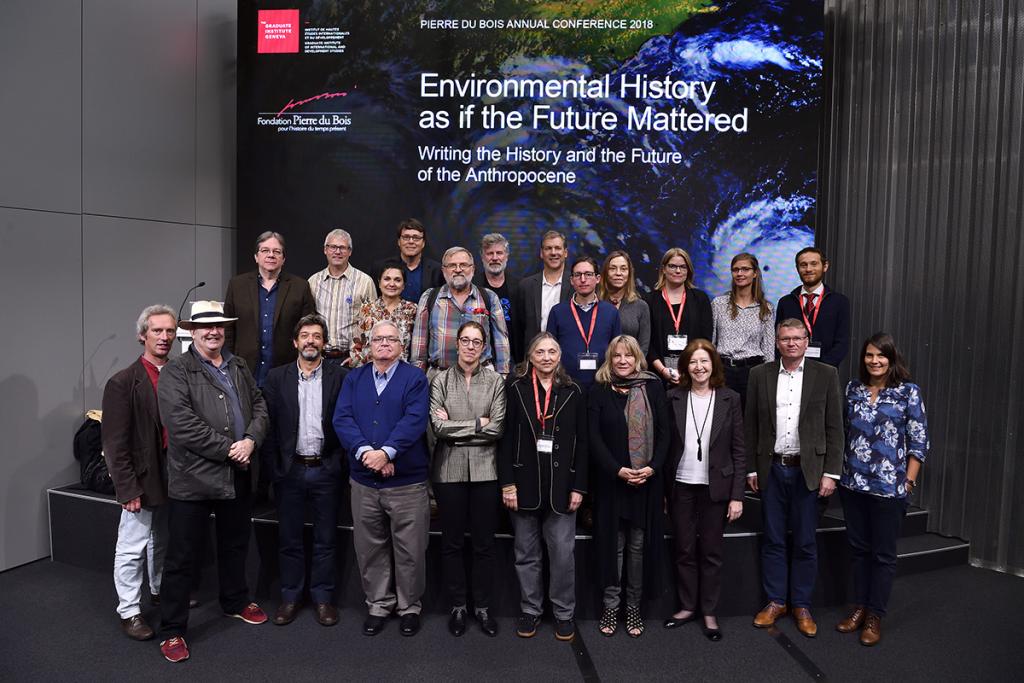On 3-4 October, the 2018 Pierre du Bois Annual Conference was held at the Graduate Institute. Scholars from a wide variety of disciplines met in Geneva, for the annual gathering which is convened by the Pierre du Bois Foundation in partnership with the Department of International History. This year’s edition, organised by Professor Susanna B. Hecht, explored the topic of global environmental history under the theme of ‘Environmental History as if the Future Mattered: Writing the History and Future of the Anthropocene’.
‘How do we understand the dynamics of the world we live in? It used to be argued that simply plowing through the documents and artifacts was sufficient, but as we see how climates are affected by people, and people by climates, and how dramatically socio-natures interact, a much more complex set of analytics is emerging that uses both the natural archive and the classic historical materials from archaeology, ethnography, formal archival materials’, said Professor Hecht. Panels featuring leading experts and graduate students delved, notably, into the questions of new and old debates in the field of environmental history, the role and place of natural archives, the environmental history of mountains and glaciers, diasporic environmental history, contemporary and future environmental concerns, as well as gender and methodological issues.
‘What this does is amplify the tool kit, methodologies and expand the realms of explanation into those that can embrace planetary globalisation as well as local processes. It gives us a much richer way to understand social change, and also sees human history as far less disassociated form the natural world. Environmental history is used not only to test models, but to give us insight into what strong changes in the natural world can induce in social responses. Never a sufficient explanation on its own, environmental history, as it is broadly conceived now, can help us see scenarios, assess institutions and rethink strategies as we look to a more environmentally unruly future’, added Professor Hecht.
Graduate Institute faculty members Liliana Andanova and Shaila Sechia Galvin participated in sessions dealing with environmental concerns during the Cold War, and with methodological issues related to gender in environmental history. They were joined by scholars from the University of São Paulo, the University of Pennsylvania, the University of Florida, Tulane University, the University of Reading, the University of California, Los Angeles, the University of California, Berkeley, the National Center for Scientific Research (CNRS), the University of Geneva, the Federal University of Rio de Janeiro, Oxford University and the University of Montpellier.


